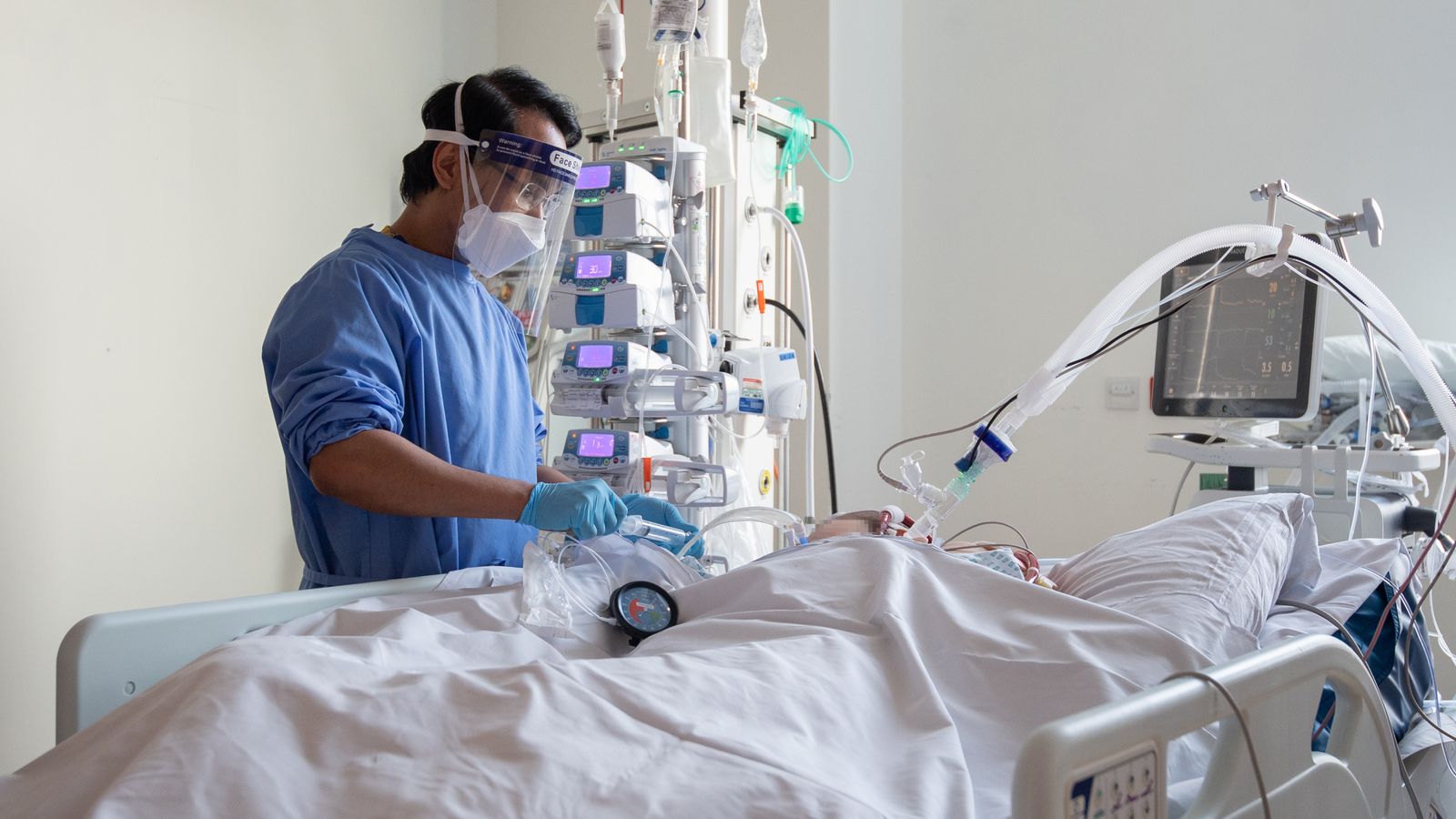A trial has shown a new, experimental drug to treat COVID-19 in the worst hit patients could stop people dying.
The anti-viral treatment Regeneron was found to save lives when given to patients with severe symptoms of the virus who had not mounted a natural antibody response of their own.
About 10,000 people took part in a UK trial of the drug between September last year and May this year and it was discovered, out of those who were randomly given it, fewer than expected had to be put on a ventilator.
The duration of their hospital stay was also cut.
Live COVID updates from the UK and around the world
The therapy works by providing patients with artificial antibodies – the substance usually created naturally inside humans to fight off infection – which target the virus and stop it attacking the body.
The two monoclonal antibodies, casirivimab and imdevimab, each bind to a different site on the coronavirus spike protein, preventing the virus infecting cells.
It is expected the treatment will be useful for people who do not have antibodies of their own against COVID infection.
The study found that, of UK patients admitted to hospital with severe COVID, around a third had no natural antibody response, and a sixth had an antibody response that was unknown.
Researchers found, at the start of the study, twice as many people without an antibody response (30%) died within 28 days compared with those who had natural antibodies (15%)
According to the study, patients who had no antibody response who were given the drug had their chances of dying within 28 days cut by a fifth, compared with the usual care alone.
Researchers said that for every 100 such patients treated with the antibody combination, there would be six fewer deaths.
Joint chief investigator Sir Martin Landray, professor of medicine and epidemiology at the Nuffield Department of Population Health, University of Oxford, said: “What we found was amongst these patients who were seronegative – they hadn’t raised antibodies of their own, if you then gave them this combination of two antibodies in an intravenous infusion, then mortality was reduced by one fifth.
“So instead of 30% dying, 24% died. So if you think of it differently, for every 100 patients who were given the intravenous infusion, we would save six lives.”
Follow the Daily podcast on Apple Podcasts, Google Podcasts, Spotify, Spreaker
For patients without antibodies given the treatment, the duration of hospital stay was four days shorter than for those not given the treatment, and the proportion of patients discharged alive by day 28 was greater (64% vs 58%).
Among patients who mounted their own antibody response, the treatment made no difference.
It is not clear when the treatment will be approved for use in the UK.
Researchers say a quick rollout will not be straightforward as the drug is not easy to obtain and patients would need to be tested for antibodies when they arrive in hospital – something that is not routinely done.
There had been fears that using artificial antibodies would lead to the risk of new variants being created, but the hope is that by using a combination of antibodies, the likelihood would be reduced.


